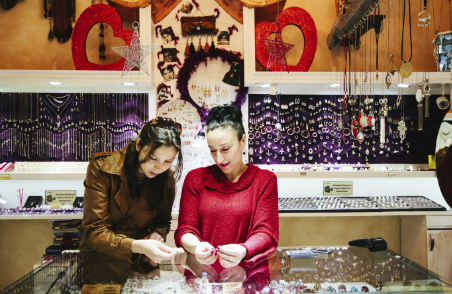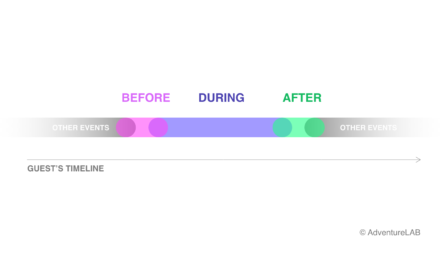Mirror, Mirror On The Wall, What Will Make Your Travel Brand Thrive Or Fall?
August 4, 2017The travel industry needs to recognise that its game has and will continue to change. Travellers and the world they explore have evolved. Mottos about the best destinations, claims for superior service levels, and other obvious reasons for buying travel industry services are just not going to cut it.
Travel professionals need to go beyond thinking about wares on shelves, and become able to adapt and design to unique expectations. One may rightly claim that one-to-one services are too expensive for mainstream markets. That is true if you choose to ignore new ways things can and will have to be done in the 21st-century travel industry. We are past the establishment of the huge importance of social media, as we enter the next instalment, with its personalised services enabled by data, co-creation, and true customer-centric, customer-empowered travel brands.
There is room and need for innovation and new business model design, in product and services as well as in the overall way the travel industry works. What you may think of as the future of the travel industry may already be mainstream. To make proper preparations for which new technologies and methodologies to benefit from, you should start by asking yourself some pivotal questions about your travel brand and your services as seen through the eyes of your customers, before someone important to your business does it for you.
DO YOU DELIVER WITHIN A LARGER CONTEXT?
To run a business in the travel industry, you need to be able to create the connection between travellers, places, and those who are taking on the role of being guides and hosts at the locations in question. Your customers are not only experiencing your offering—everything is part of a larger experience. If your view of their world ends at your proverbial doorstep, how will you share their point of view? There is much to be gained by the hotel that extends its stays beyond its front door, or the city tour service that finds succesful ways of sending visitors on their way. Become part of a total experience, rather than a part experience.
IS YOUR BUSINESS CUSTOMER EXPERIENCE-CENTRIC BY DESIGN?
Do you really design everything you do around the customer experience, putting them into the centre of your universe? Because, you know, that is where they are in their own opinion, not, at least, if they have just spent a small fortune to go on that dream vacation. Understand the key steps they take, from planning to travelling and to returning back home, and design your business around which role you play at certain times in this scenario. Then you will be able to develop core services as not being driven by your business needs, but by the experiences craved by your customers. Guess what makes the most desirable offering?
IS YOUR ORGANISATION TRULY INNOVATIVE?
This is not just about leadership or management at any level being great at coming up with ideas and passing them on to the rest of the team as assignments. Cultivating an innovative organisation is about being able to collect valuable input from any source, external or internal, as part of a continuous evaluation and evolution of what you are doing for your visitors, other stakeholders, and your business. Innovation is not just about getting good ideas, it is about challenging and transforming that which you do to continuously better your business. If you think you know it all already, that people with higher position always know better, and that there is no room for improvement, you are bound to meet a significant bump in the road sometime soon.
DO YOU HAVE A COHERENT, WELL-EXECUTED SERVICE CULTURE?
Service is not necessarily king of all within the travel industry, but lacking it is a certain downfall. It is experienced through interactions with and actions by your team, all of which go beyond a smile, however nice that may be. Let me share a few practical examples. If hotel guests get used to getting their ice buckets refilled by someone from housekeeping, and, after a few days, this does not happen, the ice cubes suddenly seem lacking. If one travel agent is good at getting back to people with answers and suggestions, and the customers are passed on to a more non-responsive colleague, disappointment sets in. Inconsistency creates confusion, or disappointment, as each experience we have with a representative of a company sets our level of expectation for the next encounter.
There can be various reasons for why customers experience an inconsistent service culture, such as lack of motivation or a service mindset. It all comes down to leadership. I know, sometimes people just need to go. This is also part of leadership. However, creating a consistent service culture is not just about doing an introductory speech about how important it is to have great service. How exactly should the team go about it? What kinds of practical tips, tricks, and tools will be shared with them to create a consistency in service, beyond that of a set of rules?
WHAT WILL REVOLUTIONISE YOUR MARKET?
If you think nothing will, this wake-up call is for you. There is change coming from different sides.
The habits and interests of travellers are evolving, both because of increased accessibility and individual flexibility through online media, and because travellers reportedly want to experience something new.
New players in the travel market are emerging, often not abiding by the established traditions, but rather establishing new customer-centric, dynamic business models. They are beyond having new products on the shelves, as they question whether they need shelves at all.
I believe you have heard of disruption. Expect it to hit the travel industry full-force, as industry innovators will crack the codes of mass customisation and answer the questions above with new, experience-enhancing offerings that are not limited by personnel, space, time, or location. What will you do to be among them?




